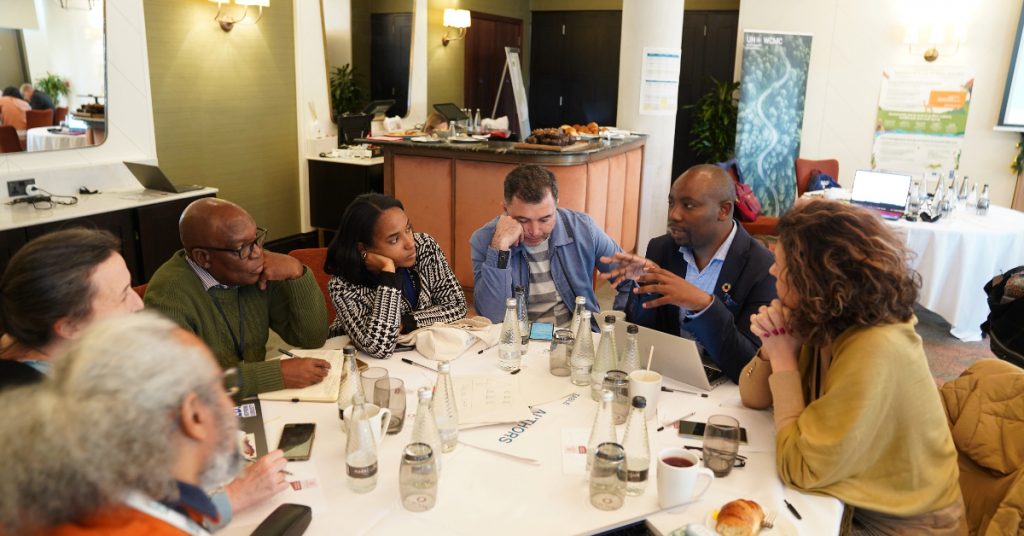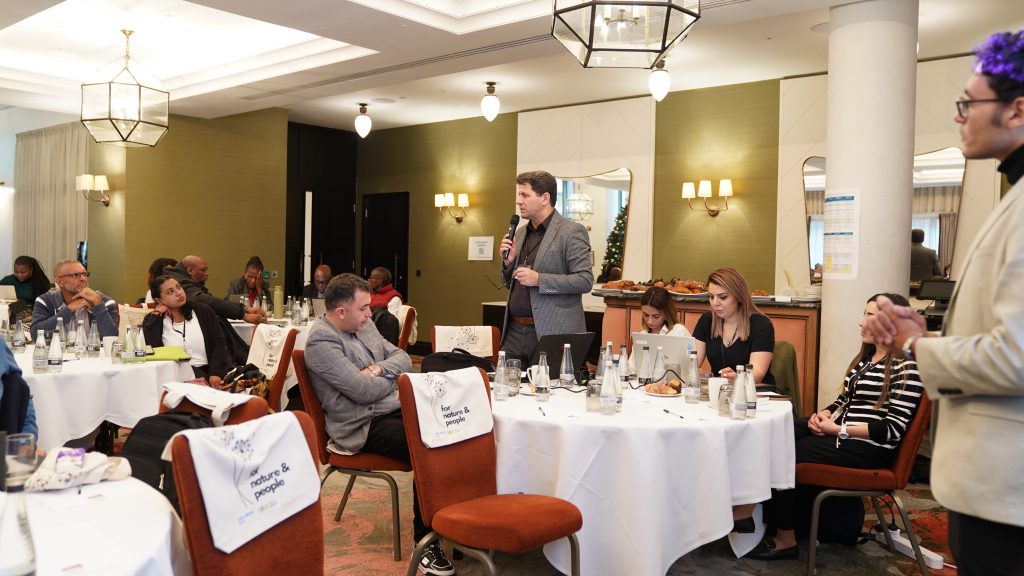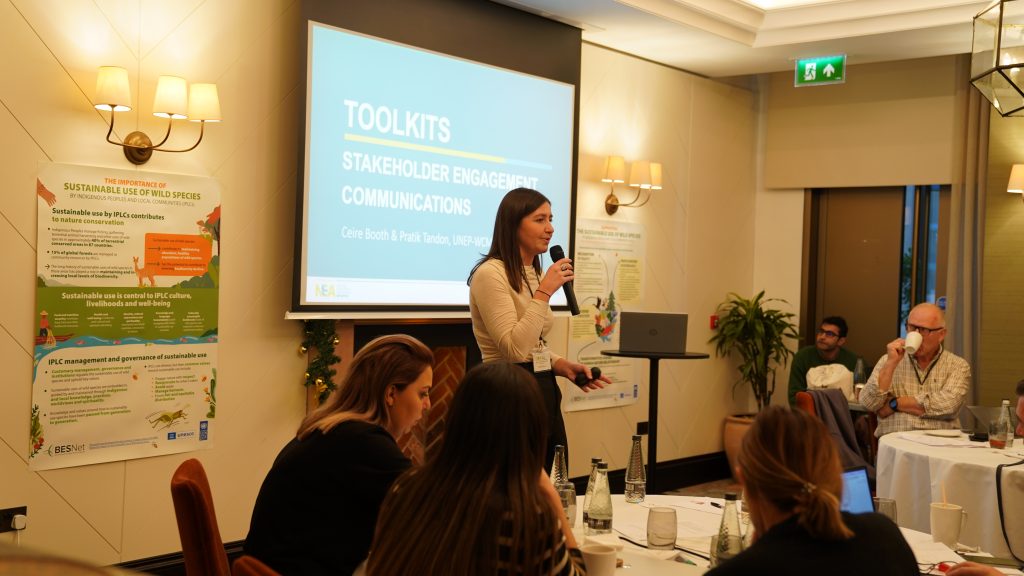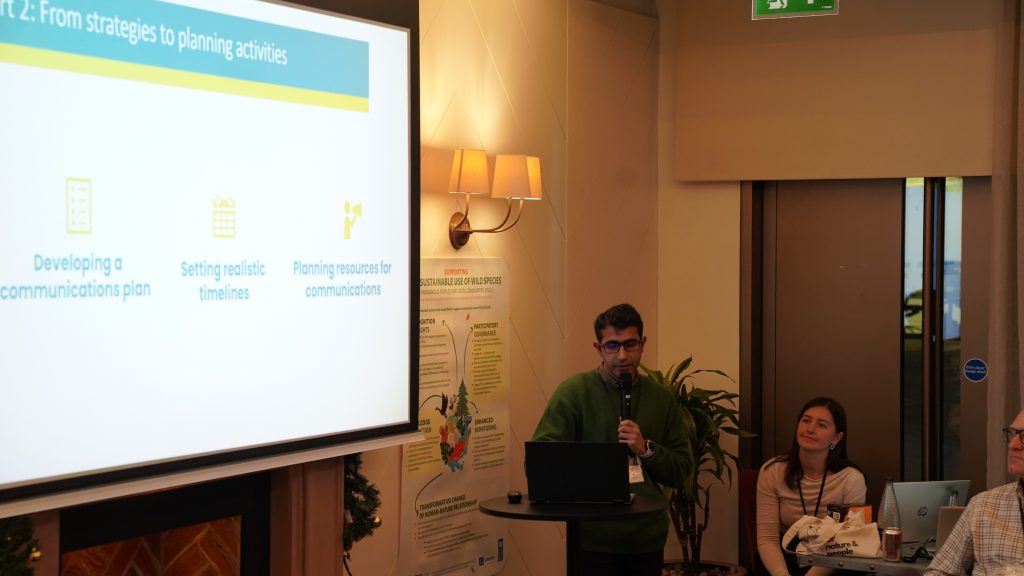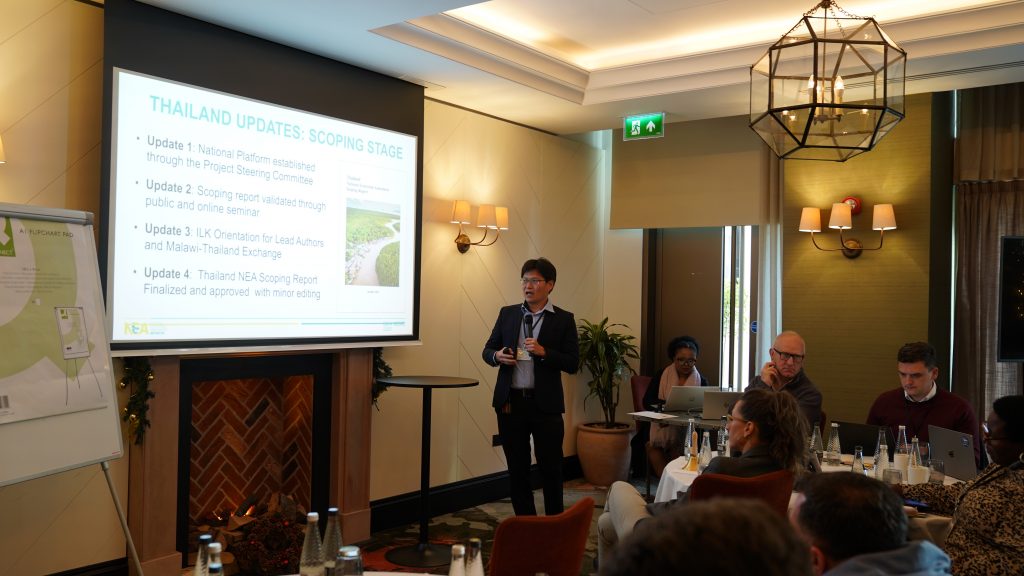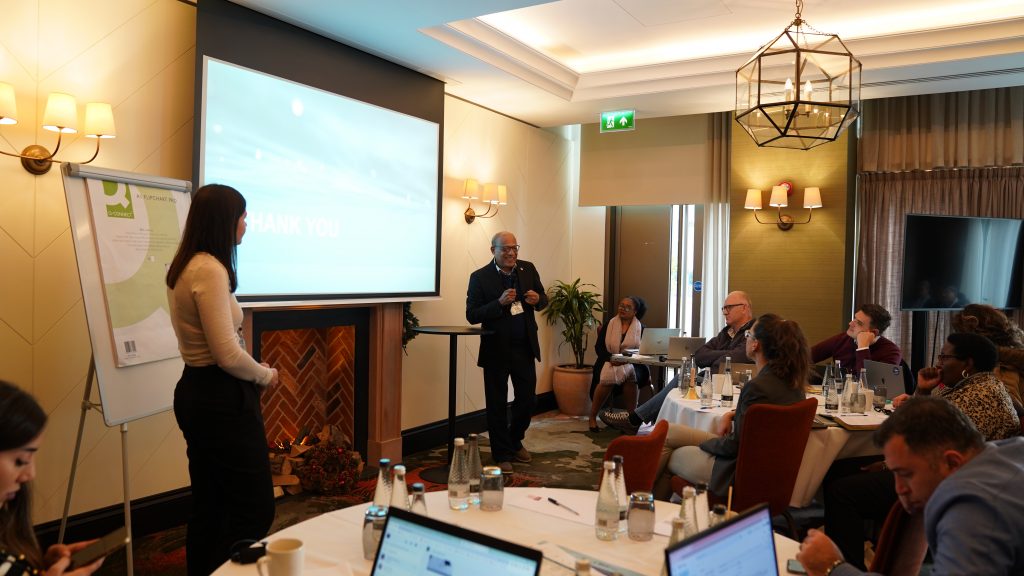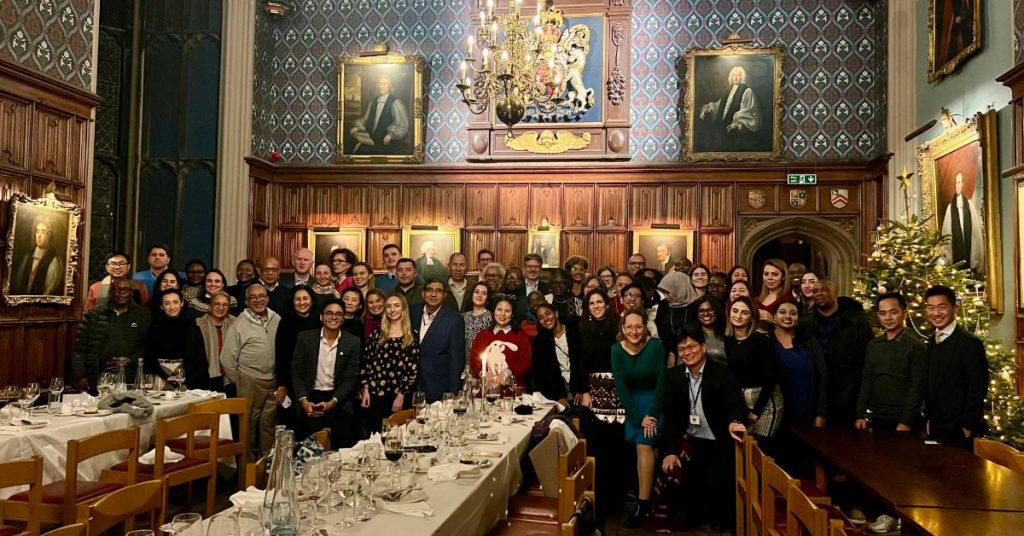
The National Ecosystem Assessment (NEA) Initiative hosted its annual global workshop in Cambridge from 27th November to 1st December 2023. This event brought together national ecosystem assessment teams, assessment authors, government representatives, experts on Indigenous and Local Knowledge (ILK), as well as practitioners from partner countries of the NEA Initiative including Azerbaijan, Bosnia and Herzegovina, Botswana, Cambodia, Cameroon, Colombia, The Dominican Republic, Grenada, Malawi, Thailand and Vietnam. It was hosted by the United Nations Environment Programme World Conservation Monitoring Centre (UNEP-WCMC) and delivered in partnership with UNDP and UNESCO under the umbrella of the Biodiversity and Ecosystem Services Network (BES-Net).
The workshop provided key updates on the status of country partners’ national ecosystem assessments, including updates on progress and sharing lessons learned around implementing the ecosystem assessment process. A key outcome of the event was strengthened understanding of the national ecosystem assessment process. The workshop also supported knowledge-sharing and peer-to-peer learning on strengthening stakeholder engagement and the inclusion of diverse knowledge systems, such as ILK, in the assessment process.
Speaking at the opening of the workshop, Dr. Thiago Uehara, Head of Policy at UNEP-WCMC, commended the continuous progress being made, highlighting that national ecosystem assessments now embrace a variety of voices, making our collective narrative richer and more inclusive. Furthermore, he spotlighted their contribution towards solidifying international action on climate change. “In a time when the world’s eyes are on the Kunming-Montreal Biodiversity Framework and the Climate Change Conference, national ecosystem assessments provide crucial insights that bridge these global discussions,” he said.
Welcoming remarks from Ms. Juanita Chaves, NEA Initiative Project Lead, described the workshop as a good opportunity for participants to showcase best practices, share experiences and provide feedback aimed at enhancing their capacity. She encouraged participants to identify new areas of cooperation and to think about the future; “We invite you to think about the work you are doing today and have done in the past for the development of your national ecosystem assessments, to ensure a future where policies are formulated based on credible, legitimate and relevant information.”
Ms. Yuko Kurauchi, Programme Specialist at UNDP’s Nature Hub, expressed her appreciation to the NEA Initiative team at UNEP-WCMC for organisation of the workshop. She also extended her thanks to country partners for ensuring the implementation of the national ecosystem assessment process and the uptake of the assessment messages in their countries as well as strengthening collaboration with the BES-Net consortium.
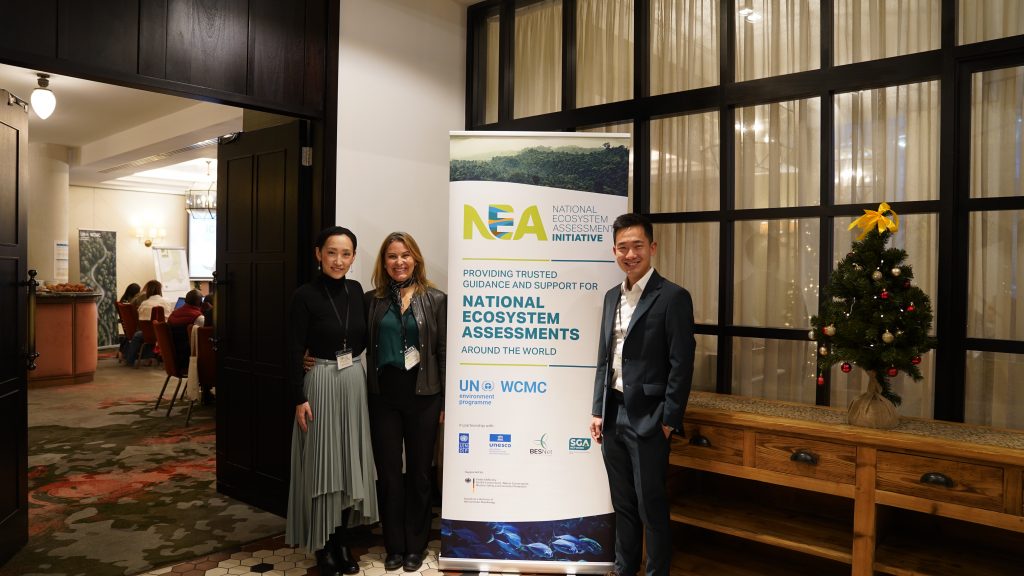
Mr. Noor Noor, Programme Officer at UNEP-WCMC, presented the background, context and expectations for the workshop. He expressed hope that the event will help to identify best practices adaptable to countries’ national context to strengthen networking, synergies and foster meaningful exchanges and mutual learning for all the participants.
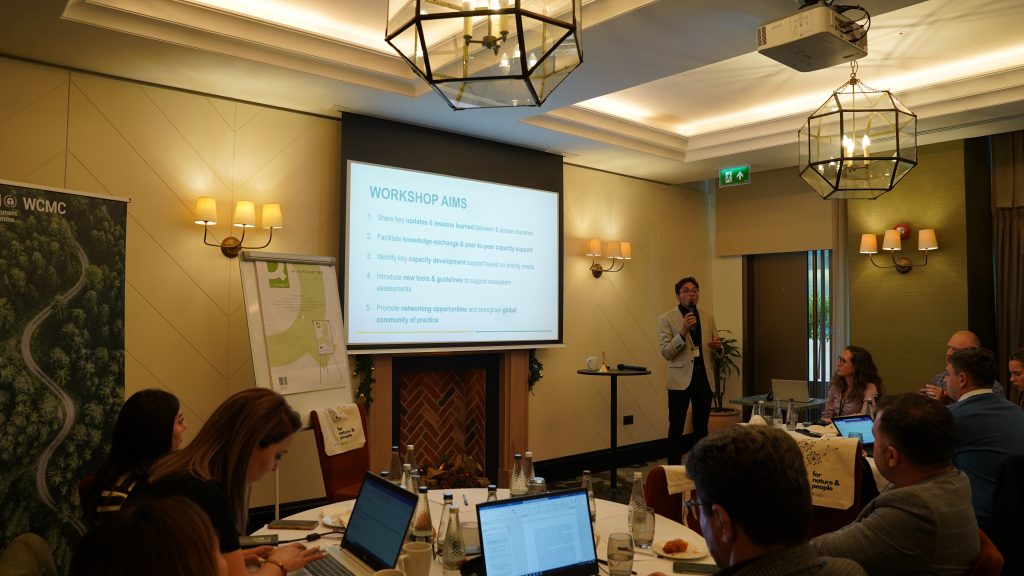
All the resources and presentations from the workshop can be found here.
Collaboration, learning and strengthening the NEA Initiative’s global community of practice
The workshop provided a space for country teams to celebrate their achievements, share experiences and capture lessons learned. It also enabled sharing best practices in implementing the national ecosystem assessment process, and supporting the use of its findings in decision-making. The NEA Initiative team benefited greatly from the workshop, learning from country partners’ experiences, receiving feedback on the support provided and identifying key capacity needs for its partners in 2024.
During the workshop, discussions were geared towards creating a better understanding and awareness of key stages, tools and guidelines within the national ecosystem assessments development and implementation process. Specifically, the event facilitated dialogue and peer-to-peer learning in the following areas: scoping stage and expert evaluation stage; embedding ILK in the assessment process; stakeholder engagement; human rights and gender considerations; assessment finalisation; scenarios in ecosystem assessments, and the relationship between biodiversity and economy.
In line with the NEA Initiative’s commitment to increasing countries’ capacity for stakeholder engagement, and for planning and implementing communications activities, toolkits containing guidance on Stakeholder Engagement and Communications were launched during the workshop.
The country teams from Botswana, The Dominican Republic, Malawi and Thailand, which have completed their scoping reports and have begun the expert evaluation stage, provided updates on project progress, key policy questions formulated, the beginning of the expert evaluation stage and their priorities going forward in 2024. Representatives from Azerbaijan, Bosnia and Herzegovina, Cambodia and Grenada showcased their achievements and lessons learned under the project’s expert evaluation stage aimed at finalising their respective ecosystem assessments. These presentations enabled a wealth of exchanges, discussions and knowledge-sharing among the participants. Cameroon, Colombia and Vietnam shared their own valuable experiences and considerations regarding the dissemination and use of the assessment findings.
On the fourth day of the workshop, UNDP’s Global Facilitator of BES-Net Trilogues, Ms. Pippa Heylings, facilitated discussions with country teams on the role of Trilogues in bringing together diverse voices, and in enabling a cross-cutting approach to ensure inclusive and gender-responsive participation.
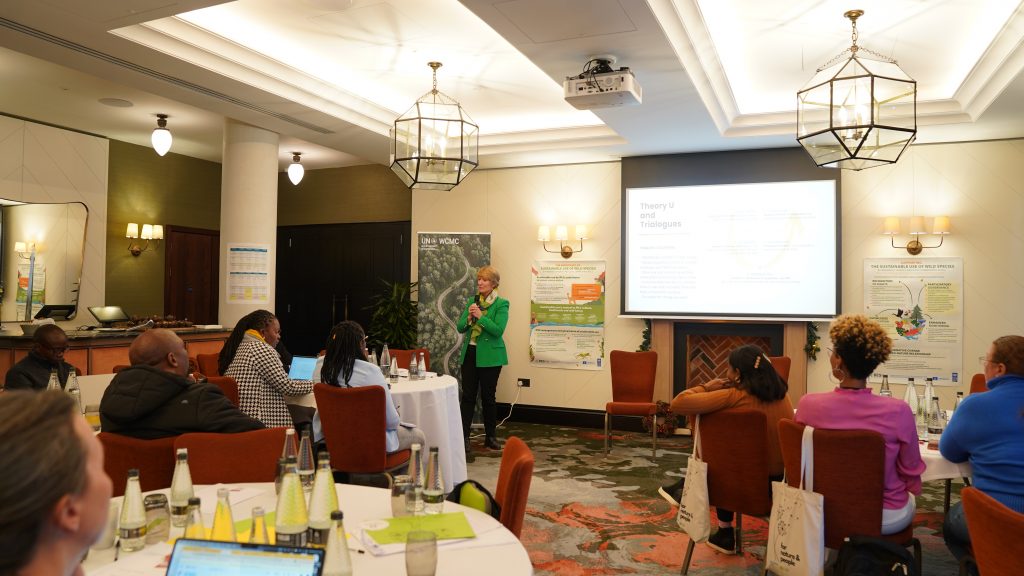
Feedback from the participants was overwhelmingly positive with more than eighty percent of the participants sharing that the workshop was excellent. “I am so happy to be here and meet different NEA country teams from around the world. While listening to the presentations, I realised that we’ve all done wonderful work while overcoming similar challenges,” said Ena Hatibović, Project Officer for the Bosnia and Herzegovina National Ecosystem Assessment.
To conclude the event, participants were encouraged to stay in touch with each other and with the workshop facilitators. Participants were also encouraged to form communities of practice, meaning that they can continue to share experiences, ask questions and pass on lessons learned. The NEA Initiative will support these efforts by arranging webinars where country teams will be able to share and acquire knowledge, and best practices for national ecosystem assessments.
The National Ecosystem Assessment Initiative (NEA Initiative) at UNEP-WCMC is part of the Biodiversity and Ecosystem Services Network (BES-Net), working in partnership with UNDP and UNESCO. Financial support for the NEA Initiative is being provided by the International Climate Initiative (IKI) of the German Federal Ministry for the Environment, Nature Conservation, Nuclear Safety, and Consumer Protection, the Norwegian Environmental Agency, the Japan Biodiversity Fund, and SwedBio.
